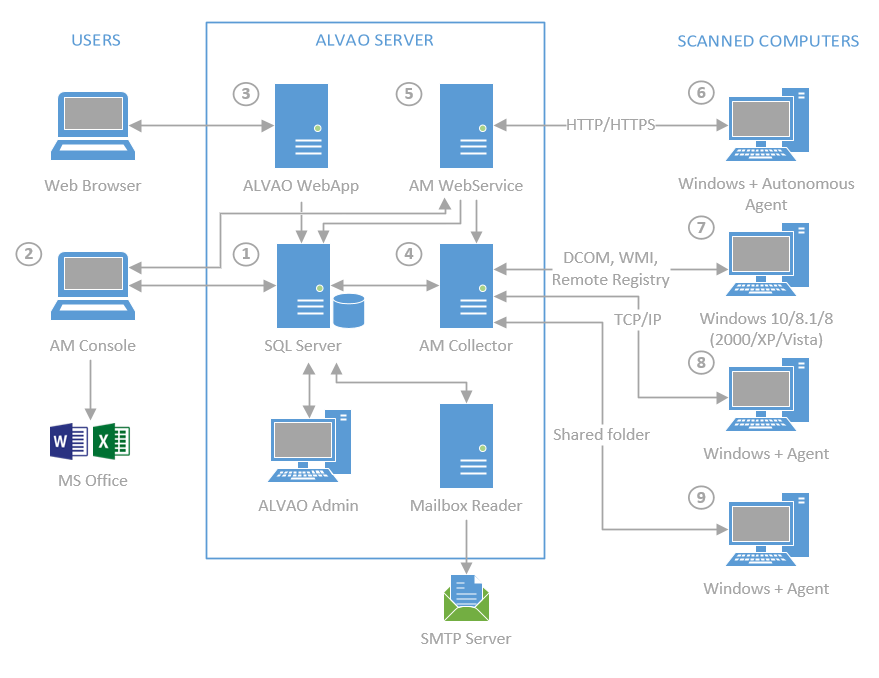System Architecture
- Database – all data registered are stored in a database. If the system is used by multiple users, all of them work with a single, shared database. You can use MS SQL Server and its Express Editions as your database system.
- Asset Management Console (AM Console) – this is the basic application for working with the system. The Console is used to connect users to the database. The Console is a Win32 application.
- ALVAO WebApp (WebApp, WA) – an Intranet interface is provided as a part of the system, allowing you to view and edit data in the database from within your Internet browser. However, if you access the database over the Intranet (or the Internet), you will not be able to perform all operations that can be performed from within AM Console. Its main purpose is to enable the ICT staff to access the database for troubleshooting purposes when off their place of work.
- Asset Management Collector (AM Collector, Collector) – a Win32 application which runs remote software and hardware detections on computers connected to your network. The data is detected based on requests issued by an ICT employee from within the console. The requests are saved in the database. AM Collector handles requests and saves the detection results in the database where they can be accessed by the system users from within the console. AM Collector can be run as an interactive application or as a system service, e.g. on a server. The data can be detected with four different methods, see points (5) to (8).
- Asset Management WebService (AM WebService) – serves for communication with autonomous agents. The agents send queries, whether they should execute the detection, and after its execution they send it to server via web service.
- Detection with autonomous Agent – an agent is installed in the workstation which performs automatic detections and sends them to a server. The communication uses the HTTP/HTTPS protocol, so the workstation can be located anywhere where there is Internet connection.
- Detection without Agent – AM Collector can detect data from Windows 10/8.1/8/2000/XP/Vista machines where the Agent is not installed. The detections are performed over the DCOM, WMI and Remote Registry protocols.
- Detection with Agent over TCP/IP – the Agent can be used to detect machines with Windows 95/98/ME as well as with Windows NT/2000/XP/Vista/7. The Agent is implemented as a system service on Windows NT/2000/XP/Vista/7. On Windows 95/98/Me, the Agent runs as a hidden application launched at the Windows start. AM Collector communicates with the Agent over the TCP/IP protocol.
- Detection with Agent over shared folder – the Agent can communicate with AM Collector via a server-based shared folder. This method is provided to ensure compatibility with legacy system versions. We always recommend using communication over TCP/IP if the Agent is used.
Did not find what you were looking for? Ask our technical support team.
|